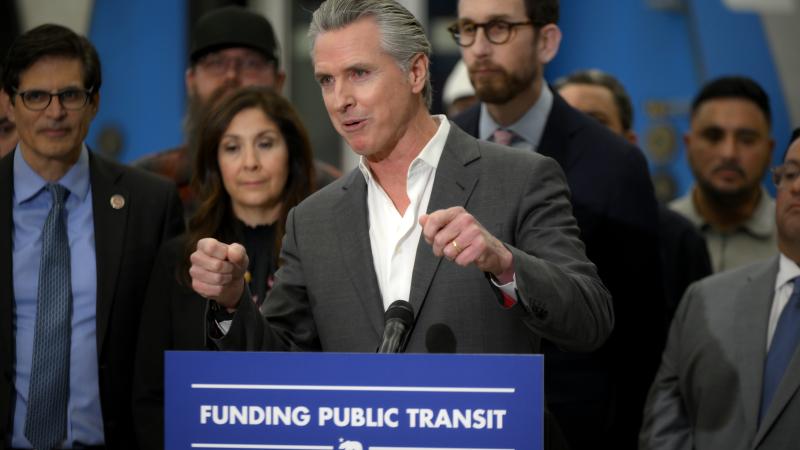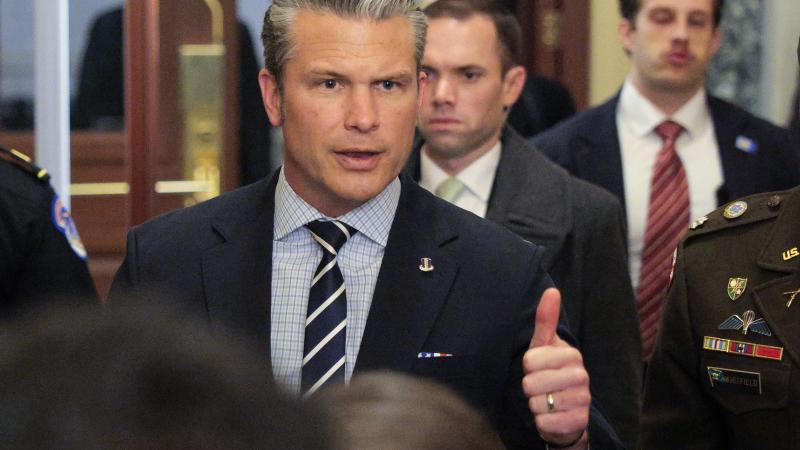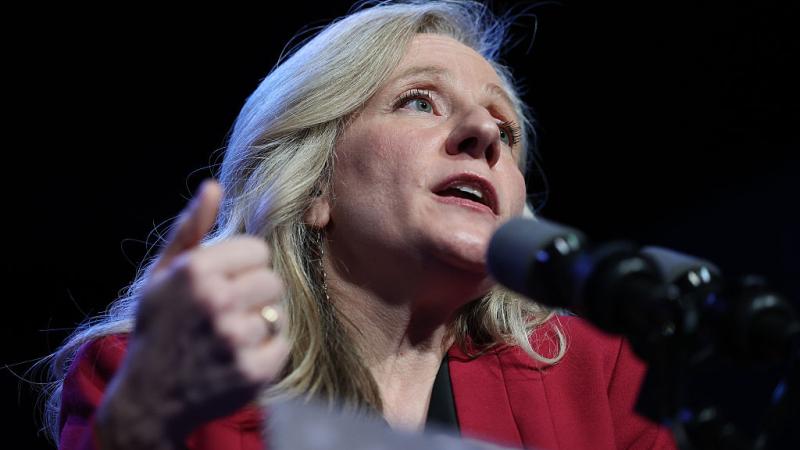Half of Ford and Buick dealers balk at investing in EVs, citing high costs, underperforming sales
Experts say that automakers and the federal government grossly overestimated consumer interest in the vehicles. “The government can’t really dictate everything it wants to dictate to the market. Seems to me we have to learn this lesson in the United States every 10 to 20 years," said energy writer and analyst David Blackmon.
As automakers go along with top-down federal regulations that are pushing America’s drivers to transition to electric vehicles, a bottom-up revolt from consumers continues, with the dealerships stuck in the middle. Approximately 1,550 Ford dealerships — about half the total in the U.S. — won’t be selling and servicing electric vehicles in 2024, the Detroit Free Press reported Thursday.
General Motors is facing dealers who don’t want to commit to the transition to all-electric lines. Half of all Buick dealers took buyouts this year rather than make the investments needed to sell and service the brand’s electric vehicles, which the Free Press reported in December 2022 cost the businesses up to $400,000.
A GM spokesperson told the Free Press that the automaker was offering “dealers who are not aligned with Buick’s future to exit voluntarily in a respectful and structured way.” Audi is scaling back its rollout of electric models to avoid burdening factories and dealerships who aren’t getting the sales volume needed to move the vehicles, Bloomberg reported. Audi plans to produce 20 models by 2026, half of which will be fully electric.
Gas-powered profits
In November, 4,000 dealerships signed a letter to President Joe Biden, calling his electric vehicle mandates “unrealistic” and asking him to give time for the technology to become better and more affordable because their lots were filling up with unsold EVs.
“It’s obvious that the government and the automakers themselves both completely overestimated the market for electric vehicles. They’re going to have to readjust, and it’s going to be a difficult time, not just for the dealers, but the car makers as well,” David Blackmon, energy writer and analyst, told Just The News.
Blackmon also said that the automakers are fortunate that their gas-powered lines are so profitable, because they’ve been able to offset the losses from EVs.
Energy expert Robert Bryce has been documenting Ford's losses on its EV lines over the past year. In the third quarter of this year, the company lost $62,016 for each of the 20,962 EVs it sold during the period. It was an improvement over second quarter losses, Bryce wrote, which were more than $70,000 for each EV it sold.
Despite the hits Ford took on its EV lines, Ford posted Q3 net income of $1.2 billion compared to an $827 million loss in the same quarter in 2022. The profit was the result of strong outcomes in its Ford Blue line, which includes gas-powered and hybrid vehicles, which are vehicles that have a gas engine that can power the car or charge the vehicle’s battery. Some of the cars in that are designed to attract sports car enthusiasts and others who want high-performance vehicles.
Overestimating consumer interest
A Ford spokesperson told the Free Press that the automaker believes that dealers know their markets best, and 86% of the population will live within 20 miles of a dealership that sells and services Ford electric vehicles.
Ford had enrolled 1,920 dealers in its voluntary electric program for the initial period of 2026 to 2024, but some dealers later withdrew, according to the Free Press. The investments that dealerships have to make in order to sell and service electric vehicles include the installation of charging infrastructure, which can cost $500,000 to $1.2 million, depending on the level of certification the dealership pursues, according to business newsletter JD Supra. Both levels of certification require the dealers to use the Ford website for all EV transactions and engage in “no haggle” pricing.
Adding to the complexity of the Biden administration's "all-electric" goal, dealers in six states have filed legal challenges to the requirements, alleging they violate various provisions of each state’s franchised dealer statutes.
The EPA’s proposed tailpipe emissions standards, which are often referred to as an EV mandate since they would require automakers to have two-thirds of their sales to be zero-emissions by 2032, haven’t been finalized yet. But it’s becoming clear that producing EVs won’t necessarily make consumers buy them.
Blackmon said the automakers and the federal government grossly overestimated consumer interest in the vehicles. The federal government also overestimated its ability to build out the charging infrastructure to support the EVs it was mandating, as the $7.5 billion it allocated for the program failed to produce a single station as of Dec. 5.
Blackmon added that the poor planning and overconfidence in executing its rules are the hallmark of central planning all over the world. The free market, he said, is always going to make better decisions than the government. “The government can’t really dictate everything it wants to dictate to the market. Seems to me we have to learn this lesson in the United States every 10 to 20 years. Here we are, learning it again,” he said.
The Facts Inside Our Reporter's Notebook
Links
- Detroit Free Press reported Thursday
- Free Press reported in December 2022
- Bloomberg reported
- 4,000 dealerships signed a letter to President Joe Biden
- energy writer and analyst
- Robert Bryce
- company lost $62,016 for each of the 20,962 EVs
- Ford posted Q3 net income of $1.2 billion
- cost $500,000 to $1.2 million
- filed legal challenges
- proposed tailpipe emissions standards















